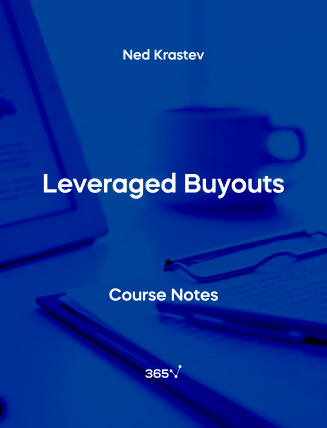A leveraged buyout (LBO) is when a company acquires another company that has low debt and stable cash flows, using borrowed funds to finance the deal. In an LBO, the target’s cash, along with the acquiring company’s assets, serves as collateral for the borrowed funds.
Approximately 75% of an LBO deal is financed through debt and mezzanine loans. Lenders agree to provide financing due to the acquired company’s underlying business that is likely to generate a steady stream of cash, ensuring repayment of the debt. And so, financial sponsors can acquire large enterprises with minimal upfront investment by using leverage.
Our open-access course notes are an excellent resource for bankers, corporate executives, consultants, financial analysts, business analysts, and finance students.
Are you looking to enhance your knowledge of leveraged buyout valuation? Discover how to build an LBO model through our step-by-step LBO Modeling in Excel course.
You can also download our free Excel templates on key financial metrics, including EBITDA, Cost of Debt, Internal Rate of Return (IRR), and Return on Investment (ROI).

